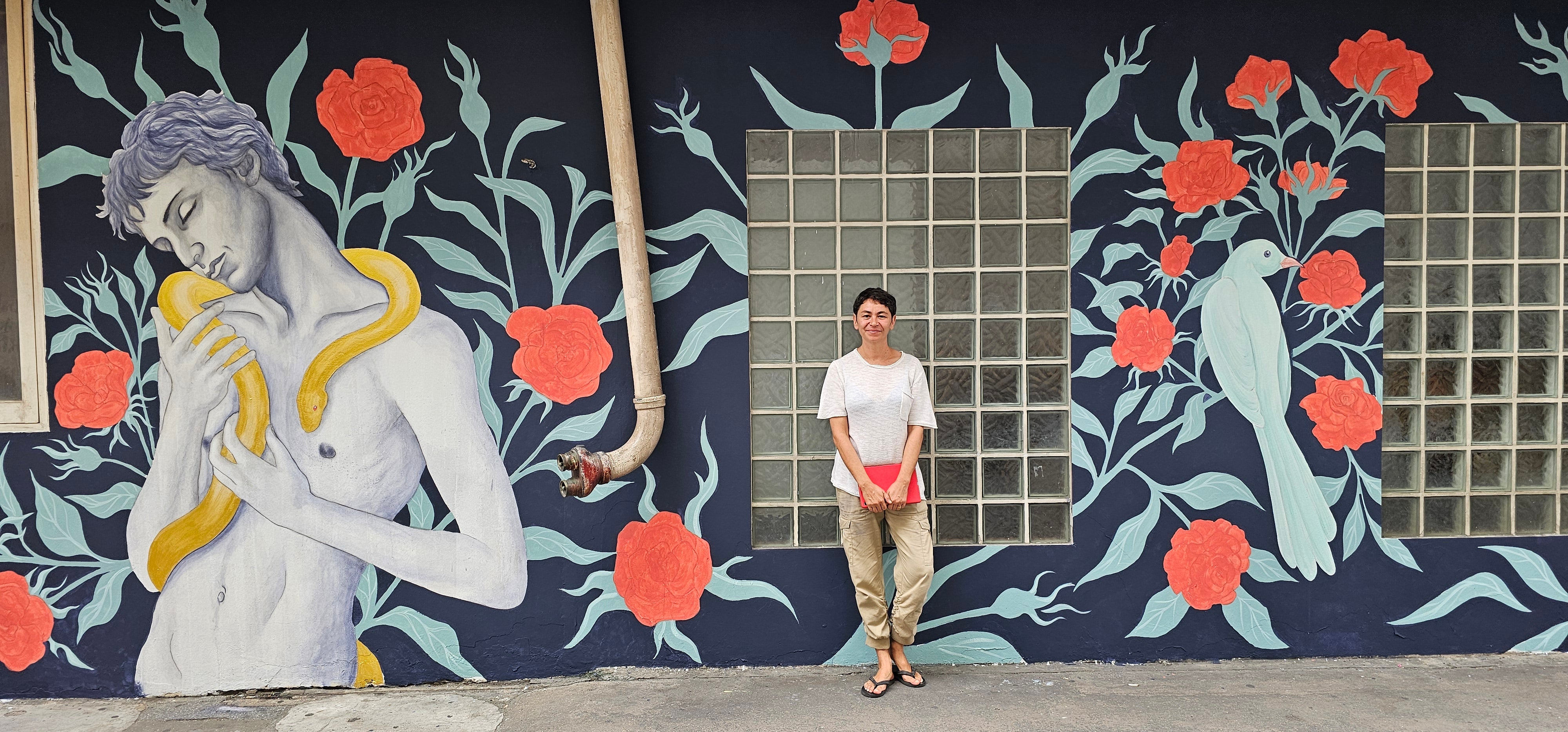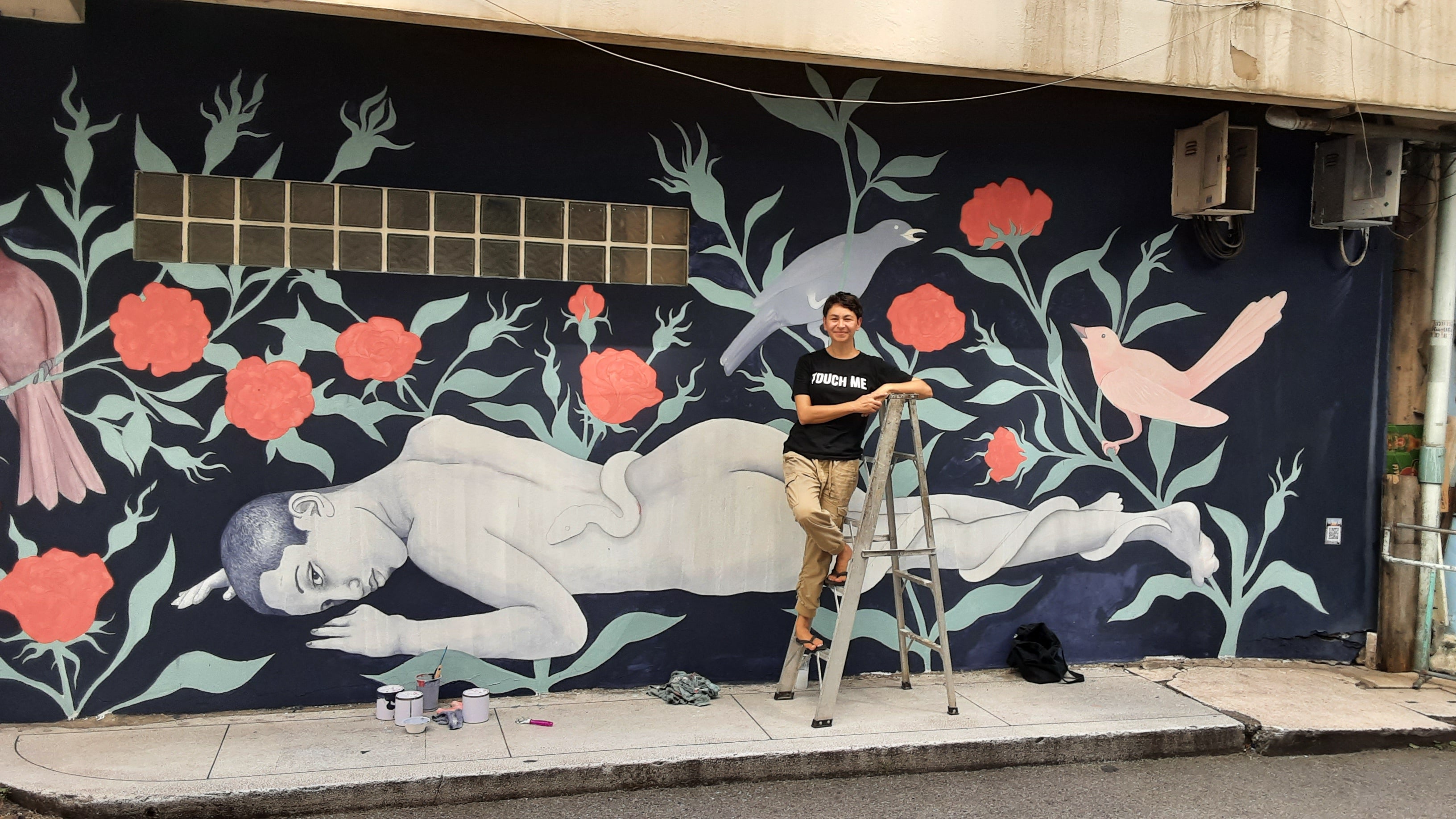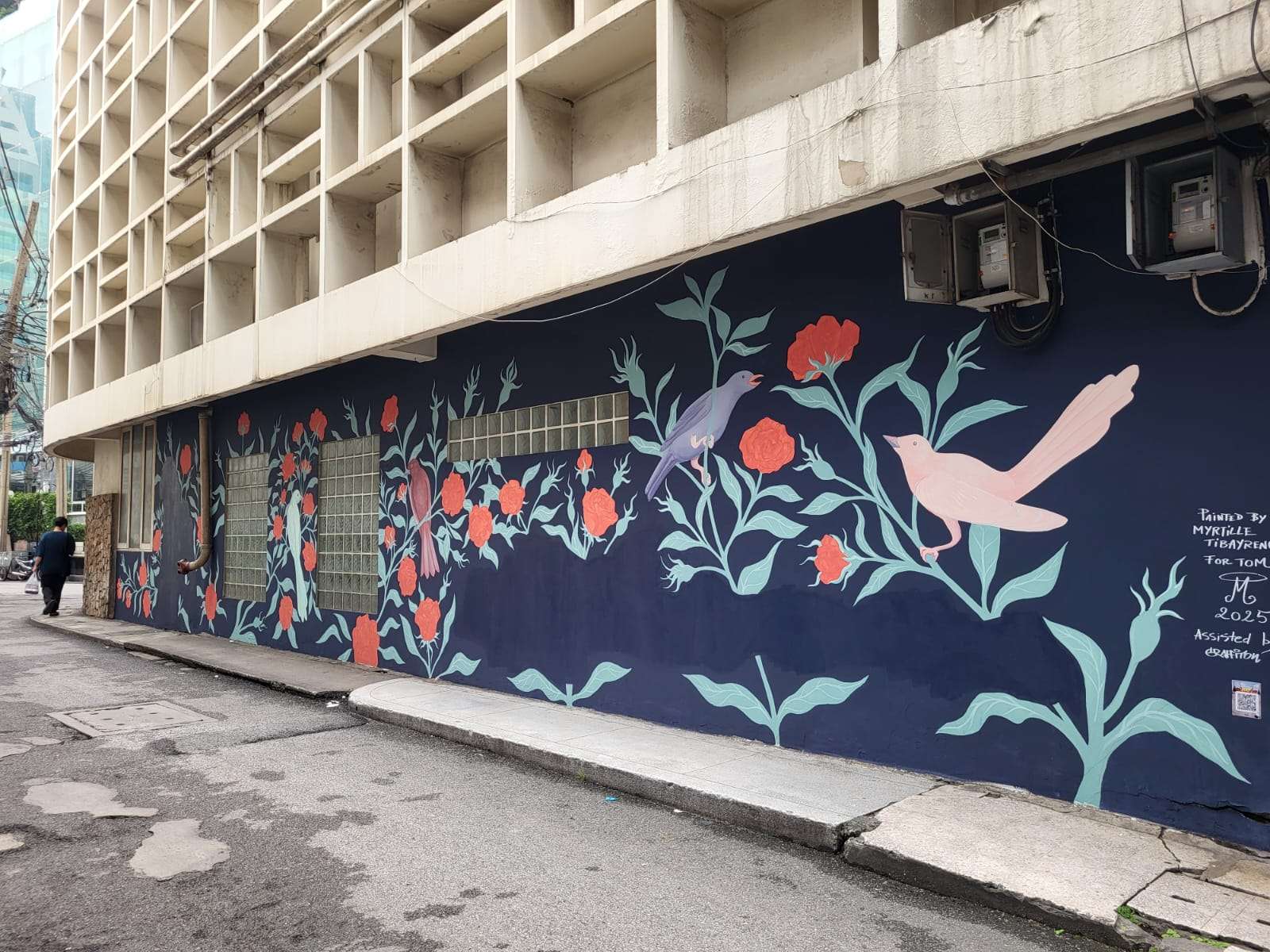French artist hits out at ‘hypocrisy’ after nude mural painted over near Bangkok red light district
Myrtille Tibayrenc tells Shahana Yasmin her design was approved and unveiled at an event with the French ambassador – but later altered without her knowledge

A French artist has accused a Bangkok hotel of censoring her work, claiming it painted over nude figures in her public mural without her knowledge.
Myrtille Tibayrenc, known professionally as Mimi, told The Independent she was commissioned by the French embassy and worked closely with the property owners on the project at the Rose Hotel near the Soi Patpong area.
The mural featured androgynous nude figures amid floral and avian motifs, and was commissioned as part of the Krung Thep Creative Streets programme to beautify the wall not far from Silom Road, Bangkok’s oldest and most recognised red-light district, known for its go-go bars, night market, and sex shows that have long drawn tourists from around the world.
Tibayrenc told The Independent that she worked closely with Navamintr Vitayakul, one of the hotel’s owners, to finalise the design.
However, the day she began painting, the hotel manager told her there might be a problem with the nudity because of the presence of a temple and a school nearby.

“I told him I could not change my project at the last minute,” she said, adding that she reassured him that the figures were chaste and “no genitals were depicted”. She also offered to cover the lower part of one reclining figure with leaves if necessary, which she eventually did.
Three weeks later she learnt from a friend that the nude figures had been painted over entirely.
“I was really shocked because nobody had told me anything about it,” Tibayrenc said.

Vitayakul confirmed to The Independent that the mural was completed and unveiled during the Krung Thep Creative Streets weekend in September – in the presence of a number of visitors, including the French ambassador – before it was altered.
“Everything was intact, the full murals were there, everyone was fine with it,” he said. “Then, in the following week, Mimi sent me a private message. I was flabbergasted. I found out my brother had done this while I was abroad.”
He explained that while the property was co-owned by several members of his family, the decision to paint over the mural figures was taken solely by his brother, Khun Tay, “without consulting anyone”.
“He decided to do it while I was travelling,” Vitayakul claimed. “There had been no complaints from the temple, the school or anyone else in the community. It was his personal decision, based on his own feelings about the imagery.”
The owner described the artwork as a figurative scene loosely evoking the Garden of Eden, with a reclining woman and a man holding a snake.
“I don’t find it erotic or indecent,” he said. “When you see contemporary paintings, it’s up to interpretation. But my brother didn’t want it to be part of the hotel.”
Tibayrenc said the French mission later contacted local authorities and the hotel management to clarify the situation and was told Khun Tay had ordered the nude figures to be painted over while Vitayakul was on holiday.
The episode has received widespread attention since the artist drew attention to it in a Facebook post earlier this month, where she called the decision to paint over the mural “hypocrisy” given its location so close to the red light district.
In response to the artist’s post, the Bang Rak District Office denied any involvement from the Bangkok Metropolitan Administration.
The agency said it “has no policy to censor artwork” and described the matter as “a misunderstanding and miscommunication between the artist and the venue owner during the working process”.
It added that the hotel had made “some adjustments to make the artwork suitable for the hotel’s context and the surrounding community”.
The statement was deleted after public criticism, once social media users pointed out that Tibayrenc had not been notified of the changes.

The artist said she had only received a message from the hotel manager asking for her email ID, saying someone wanted to contact her, but she received no correspondence.
Vitayakul argued that he did not see the act as censorship but rather as “a matter of personal taste”.
“Censorship would mean covering certain parts with black paint or bars,” he told The Independent. “Painting over the whole thing is more than censorship – it’s someone’s personal dislike of certain imagery. I’ve never supported censorship, and I don’t think my brother meant it that way. We think he's narrow-minded to believe these images have certain connotations.”
The Bangkok Metropolitan Administration claimed in a post that Khun Tay had asked for parts of the artwork to be “edited” so they would “blend” in with the original – but that Tibayrenc refused.
“They lied about the fact Khun Tay contacted me. We have never spoken or met,” she told The Independent, adding she had never even known of his existence before.
The administration also said that both parties had now “resumed discussions, reached an understanding and made joint agreements” for Tibayrenc to “refine the artwork” so that it “beautifully reflects the identity of the Bang Rak neighbourhood”.
Vitayakul said he would support Tibayrenc’s return. “She’ll come back to revise or rework the mural,” he said. “It should be the artist’s call. She should decide the design and the timeline. It’s up to her.”
The hotel owner hoped the incident would only serve to “get people to pay more attention to art”. “Art reflects who we are, and culture only stays alive if it keeps evolving,” he added.
Tibayrenc confirmed that she was in negotiations with the hotel and the embassy to return and paint a new mural, one that would satisfy her artistic vision as well as the property owners’ concerns.
“My response to this will be my new painting, which hopefully will be approved,” she said.
Join our commenting forum
Join thought-provoking conversations, follow other Independent readers and see their replies
Comments